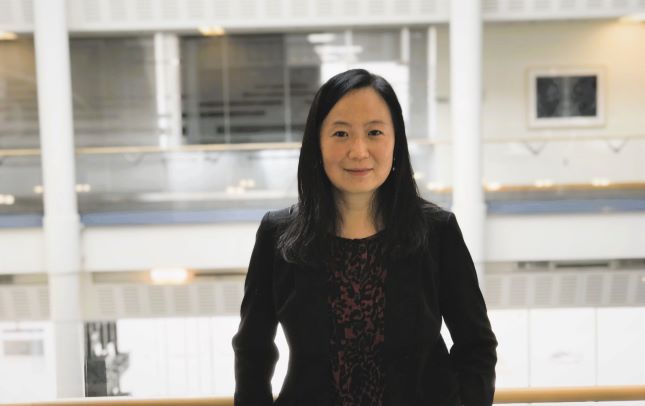Invited Speakers
Edward Grefenstette

Title: Going beyond the benefits of scale by reasoning about data
Date: 2 May 9:30-10:30
Abstract: Transformer-based Large Language Models (LLMs) have taken NLP—and the world—by storm. This inflection point in our field marks a shift from focussing on domain-specific neural architecture design and the development of novel optimization techniques and objectives to a renewed focus on the scaling of model size and of the amount of data ingested during training. This paradigm shift yields surprising and delightful applications of LLMs, such as open-ended conversation, code understanding and synthesis, some degree of tool-use, and some zero-shot instruction-following capabilities. In this talk, I outline and lightly speculate on the mechanisms and properties which enable these diverse applications, and posit that the training regimen which enables these capabilities points to a further shift, namely one where we go from focussing on scale, to focussing on reasoning about what data to train on. I will briefly discuss recent advances in open-ended learning in Reinforcement Learning, and how some of the concepts at play in that work may inspire or directly apply to the development of novel ways of reasoning about data in supervised learning, in particular in areas pertaining to LLMs.
Speaker Bio: Ed Grefenstette is the Head of Machine Learning at Cohere, a provider of cutting-edge NLP models that’s solving all kinds of language problems; including text summarization, composition, classification and more. In addition, Ed is an Honorary Professor at UCL. Ed’s previous industry experience comprises Facebook AI Research (FAIR), DeepMind, and Dark Blue Labs, where he was the CTO (acquired by Google in 2014). Prior to this, Ed worked at the University of Oxford’s Department of Computer Science, and was a Fulford Junior Research Fellow at Somerville College, whilst also lecturing students at Hertford College taking Oxford’s new computer science and philosophy course. Ed’s research interests span several topics, including natural language and generation, machine reasoning, open ended learning, and meta-learning.
Kevin Munger

Title: Chatbots for Good and Evil
Date: 3 May 14:45-15:45
Abstract: The capacities of LLM-powered chatbots have been progressing on the order of months and have recently passed into mainstream public awareness and adoption. These tools have been used for a variety of scientific and policy interventions, but these advances call for a significant re-thinking of their place in society. Psychological research suggests that “intentionality” is a key factor in persuasion and social norm enforcement, and the proliferation of LLMs represents a significant shock to the “intentionality” contained in text and particularly in immediate, personalized chat. I argue that we are in a period of “informational disequilibrium,” where different actors have different levels of awareness of this technological shock. This period may thus represent a golden age for actors aiming to use these technologies at scale, for any number of normative ends; this includes social scientists and computational linguists. More broadly, I argue that the “ethical” frameworks for evaluating research practices using LLM-powered chatbots are insufficient to the scale of the current challenge. This is a potentially revolutionary technology that requires thinking in moral and political terms: given the power imbalances involved, it is of paramount importance that chatbots for good do not inadvertently become chatbots for evil.
Speaker Bio: Kevin Munger is the Jeffrey L. Hyde and Sharon D. Hyde and Political Science Board of Visitors Early Career Professor of Political Science and Assistant Professor of Political Science and Social Data Analytics at Penn State University.Kevin’s research focuses on the implications of the internet and social media for the communication of political information. His speciality is the investigation of the economics of online media; current research models “Clickbait Media” and uses digital experiments to test the implications of these models on consumers of political information.
Joyce Chai

Title: Language Use in Embodied AI
Date: 4 May 14:15-15:15
Abstract: With the emergence of a new generation of embodied AI agents, it becomes increasingly important to enable language communication between humans and agents. Language plays many important roles in embodied AI. In this talk, I will share some of the experiences in my lab that study the pragmatics of language, for example, in mediating perceptual differences, learning from language instructions, and planning for joint tasks. I will talk about how the embodied context shapes language use and influences computational models for language grounding to perception and action. I will show the importance of collaborative effort and theory of mind in language communication and how they affect common ground for situated tasks. I will discuss key challenges as well as new perspectives on these problems brought by recent advances in LLM and generative AI.
Speaker Bio: Joyce Chai is a Professor in the Department of Electrical Engineering and Computer Science at the University of Michigan. Before joining UM in 2019, she was a Professor of Computer Science and Engineering at Michigan State University. She holds a Ph.D. in Computer Science from Duke University. Her research interests span from natural language processing and embodied AI to human-AI collaboration. She is fascinated by how experience with the world and how social pragmatics shape language learning and language use; and is excited about developing language technology that is sensorimotor grounded, pragmatically rich, and cognitively motivated. Her current work explores the intersection between language, perception, and action to enable situated communication with embodied agents. She served on the executive board of NAACL and as Program Co-Chair for multiple conferences – most recently ACL 2020. She is a recipient of the National Science Foundation Career Award and has received several paper awards with her students (e.g., the Best Long Paper Award at ACL 2010 and an Outstanding Paper Award at EMNLP 2021). She is a Fellow of ACL.